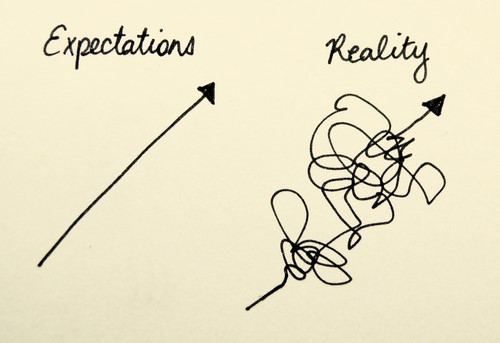Three Key Tips for a Successful Interview
April 27, 2020The Ultimate Small Talk Survival Kit for Business Communication
December 27, 2022
Languages
How are you managing client expectations in the age of Corona?
This can be a tricky question, even when business is booming.
Yet, now that your clients will also be feeling the financial pinch, they may try to squeeze even more out of you / your company.
Sometimes, you may be in a position to say yes.
But what if your answer has to be “No”?

Here are 3 classic Business English tips to managing client expectations – and retaining critical goodwill:
- English-speakers never want to hear the word “No”.
Instead – use words like “However” or “while” to soften an unwelcome message. For example:
“At this point, we’re somewhat limited in our options. However, I can certainly try to ….”
Notice the near-absence of negative words here? And the clear willingness to be flexible?
“While that’s not a point we signed on; I’m more than happy to revisit this in a separate discussion.”
Neat deflection here – a clear “No” without saying it, but leaving the door open for further negotiation. - Use “actually” to help qualify and soften a refusal.
If there’s a “misunderstanding” (let’s say the client wants something not covered in the contract):
instead of saying:
“No – we didn’t agree to that” (this can spell the end of a beautiful business relationship with English-speaking clients), try:
“I’ll just point you to the contract, this is what we actually agreed to. However, I’m happy to set a time to discuss further.” - Showing a willingness to find a solution you can afford can be worth gold – it will help defuse the situation, the effort will be appreciated and it could well salvage (and even strengthen) the relationship.
For example:
“However, we can quote you for this additional service at a special rate” / “While this service isn’t featured in the contract, we might be able to offer you a simpler alternative at no added cost”.
By using these techniques with your English-speaking clients, you’ll not only deftly manage client expectations – but may well boost your business prospects down the track.
